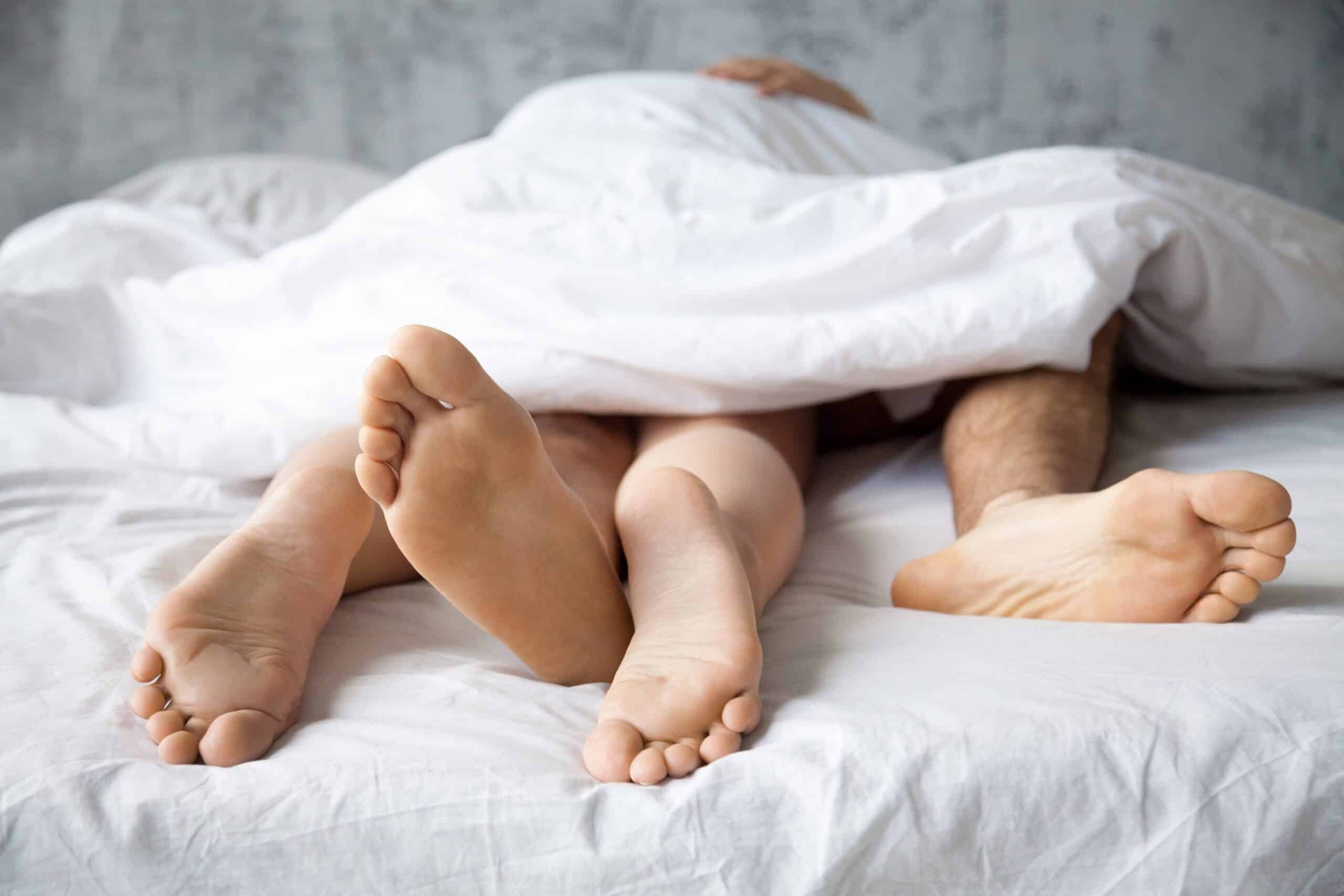The studies were led by clinicians and scientists at Imperial College London and Imperial College Healthcare NHS Trust. They were funded by the National Institute for Health and Care Research (NIHR) Imperial Biomedical Research Centre (NIHR-Imperial BRC) and the Medical Research Council, part of UK Research and Innovation.
Kisspeptin is a naturally-occurring hormone that stimulates the release of other reproductive hormones inside the body. The team has previously shown in men with intact sexual desire that kisspeptin can enhance responses to sexual stimuli, and boost attraction brain pathways, independent of other reproductive hormones like testosterone. Now, they investigated the effects in women and men with low sexual desire for the first time.
These two clinical trials involved 32 pre-menopausal women and 32 men with HSDD. In both studies, patients underwent scanning of the brain using MRI, as well as blood and behavioral tests. Kisspeptin administration improved sexual brain processing in both women and men, resulting in positive effects on sexual behavior compared to placebo. These are the first clinical studies to explore the ability of kisspeptin to boost sexual pathways in women and men distressed by their low sexual desire.
Kisspeptin-based treatments
The researchers believe that the results lay the foundations for kisspeptin-based treatments for women and men with HSDD.
Dr. Alexander Comninos, from the Department of Metabolism, Digestion and Reproduction at Imperial College London, Consultant Endocrinologist at Imperial College Healthcare NHS Trust and co-senior author of the study, said:
“Low sexual desire can be distressing and so result in HSDD. This can have a major detrimental impact on relationships, mental health, and fertility. Even though it is relatively common, treatment options in women are limited, carry significant side effects, and in some cases can be harmful to even try. And unfortunately, these treatments have limited effectiveness. In men, there are currently no licensed treatments and none on the horizon. Therefore, there is a real unmet need to find new, safer, and more effective therapies for this distressing condition for both women and men seeking treatment.
“Our two studies provide proof-of-concept for the development of kisspeptin treatments, as we provide the first evidence that kisspeptin is a potentially safe and effective therapy for both women and men with distressing low sexual desire. Additionally in men, we demonstrate that kisspeptin can have positive effects not only in the brain but also in the penis by increasing rigidity. Furthermore, kisspeptin was well-tolerated by both women and men with no side effects reported, which is crucial from a drug development point of view. We now plan to take things forward to hopefully realize the potential of kisspeptin therapeutics in psychosexual disorders – sexual problems which are psychological in origin, such as unexplained low libido.”
Next steps
Professor Waljit Dhillo, an NIHR Senior Investigator, also from the Department of Metabolism, Digestion and Reproduction at Imperial College London, Consultant Endocrinologist at Imperial College Healthcare NHS Trust, and co-senior author of the study, added:
“Our studies build on our previous work to assess the effectiveness of kisspeptin and its boosting effects in terms of arousal and attraction. It is highly encouraging to see the same boosting effect in both women and men, although the precise brain pathways were slightly different as might be expected.
“Collectively, the results suggest that kisspeptin may offer a safe and much-needed treatment for HSDD that affects millions of people around the world and we look forward to taking this forward in future larger studies and in other patient groups.”
Boosting effect
The study in women involved a randomized, double-blind, two-way crossover, placebo-controlled trial at Invicro and Hammersmith Hospital (part of Imperial College Healthcare NHS Trust), between October 2020 and April 2021. Data analysis was carried out by Imperial College London researchers.
32 pre-menopausal heterosexual women with HSDD (aged 19-48 years) completed two study visits, one for the administration of kisspeptin and another visit for a placebo. Participants completed psychometric questionnaires before and towards the end of kisspeptin or placebo administration to assess their mood and behavior. During kisspeptin or placebo administration, participants underwent functional MRI while watching erotic videos and viewing male faces to see how brain activity was affected. Non-erotic exercise videos were used as a control.
The team found that kisspeptin improved sexual and attraction brain activity in key brain areas in women. They also found that women who were more distressed by their sexual function showed greater kisspeptin-enhanced brain activity in the hippocampus (a key structure implicated in female sexual desire). Furthermore, the more kisspeptin activated the posterior cingulate cortex – a key behavioral brain area – in response to attractive male faces, the less sexual aversion was reported by participants. Crucially, the psychometric analyses revealed that the women reported feeling sexier during kisspeptin, compared to the placebo.
Improved sexual desire
In the second study, which was also a randomized, double-blind, two-way crossover trial, 32 heterosexual men with HSDD (aged 21-52 years) underwent a similar study with the addition of the measurement of penile rigidity, between January and September 2021.
The study demonstrated that kisspeptin significantly boosted brain activity in key structures of the sexual brain network while also increasing penile rigidity by up to 56 percent compared to a placebo while viewing an erotic video. Similarly to the study in women, kisspeptin also had greater effects in key brain regions in men more distressed with their low sexual desire. Furthermore, psychometric analyses revealed that kisspeptin improved ‘happiness about sex’ reported by the men.
Dr. Comninos and Professor Dhillo now plan to take this forward with larger-scale studies, studies in different populations, and collaborations to develop kisspeptin as a realistic treatment for both women and men with distressing psychosexual disorders.
Accompanying video: https://www.youtube.com/watch?v=uqbhviYvT88




